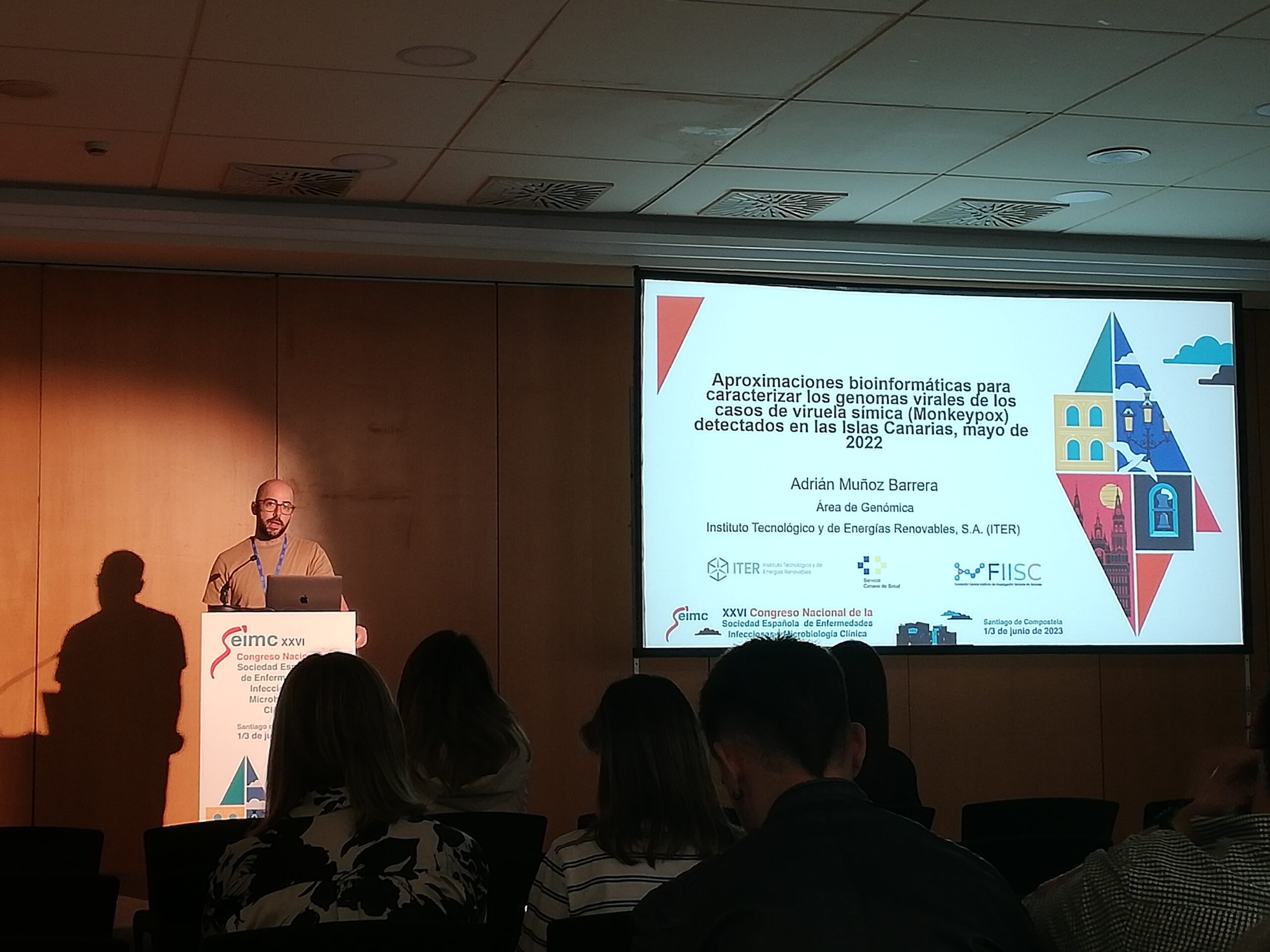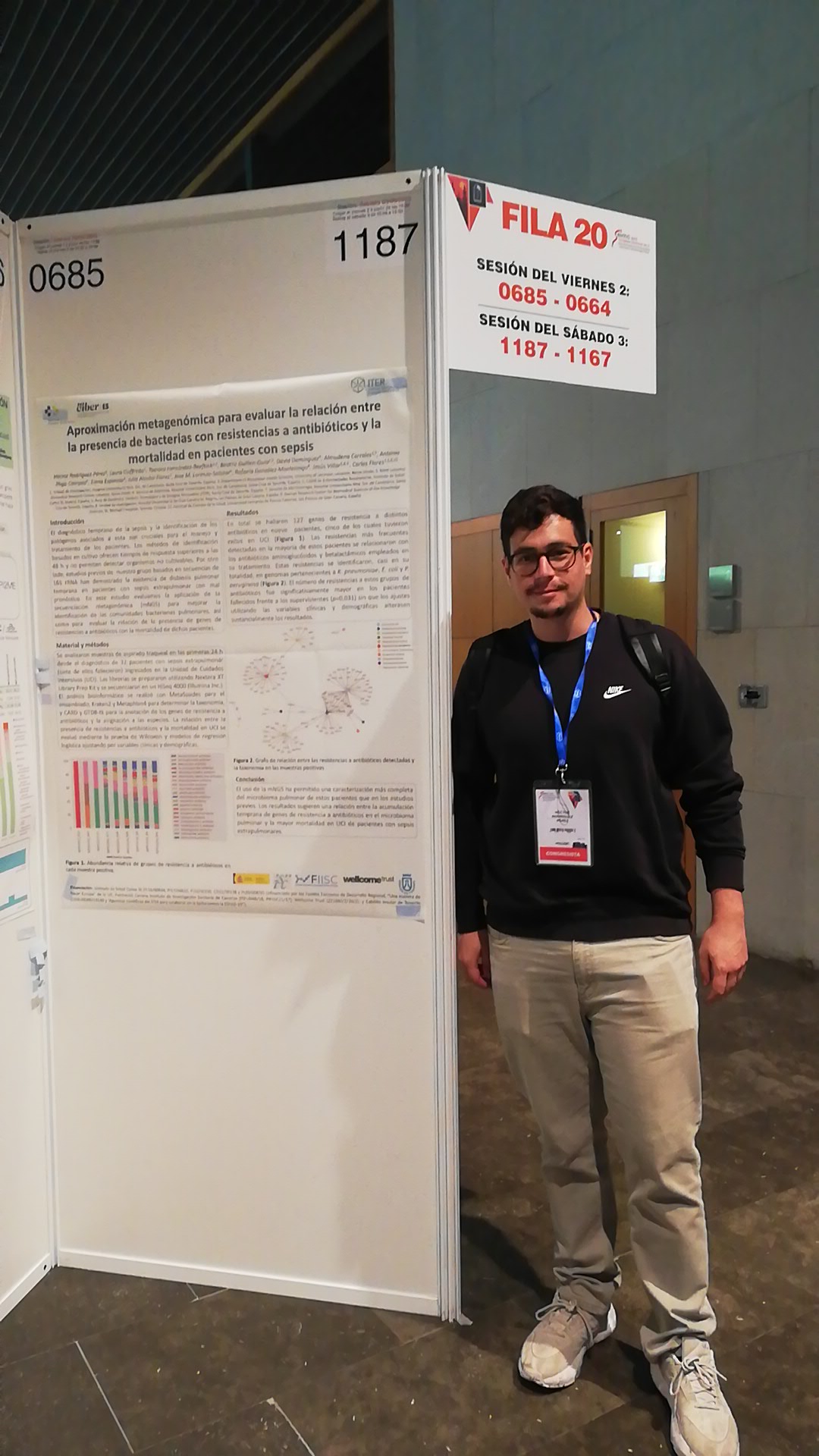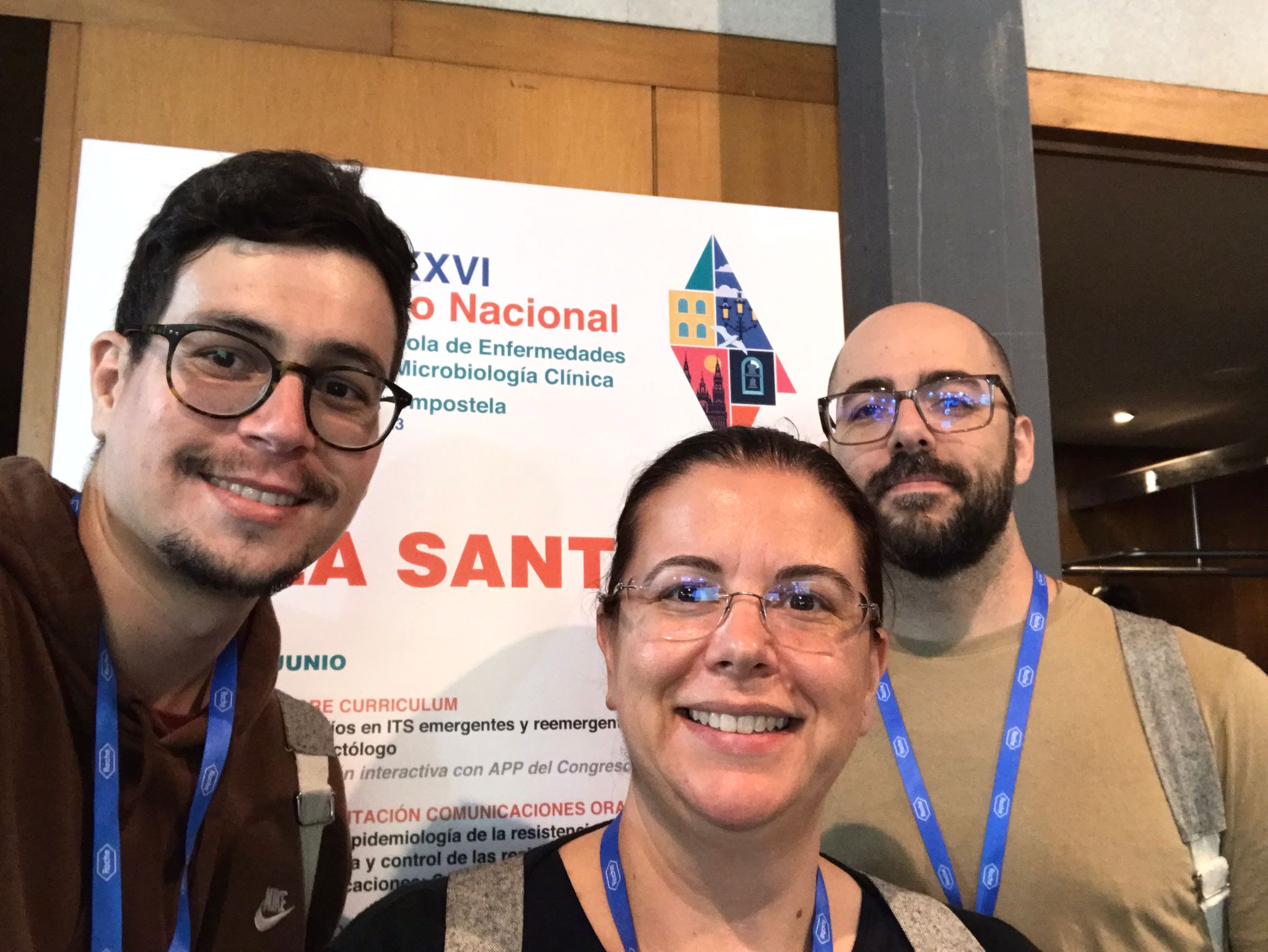The research team of the Genomics Area has collaborated on three scientific papers presented at this scientific event, which brought together a large number of national and international experts.
The research staff of the Genomics Area at the Institute of Technology and Renewable Energies (ITER) participated this year, for the first time, in the SEIMC2023 Congress, held in its XXVI edition from June 1 to 3, 2023, in Santiago de Compostela (Galicia).
This scientific event, organized by the Spanish Society of Infectious Diseases and Clinical Microbiology, featured over a thousand scientific papers focused on various fields: viral infections, sepsis, antimicrobial resistance, diagnosis, and management of infectious diseases.
The scientific papers presented at the seminar by the research staff of the Genomics Area and collaborating researchers from the Genetic Variation and Disease Group of the University Hospital of Nuestra Señora de Candelaria (FIISC) were as follows:
- Bioinformatic approaches to characterize the viral genomes of simianpox (Monkeypox) cases detected in the Canary Islands, May 2022.
- Metagenomic approach to assess the relationship between the presence of antibiotic-resistant bacteria and mortality in patients with sepsis.
- Evaluation of reinfection rates and disease severity of the Ómicron BA.5 variant-associated with SARS-CoV-2 in the Canary Islands (Spain).
The first paper presented a study on the characterization of the viral genome of a simianpox (Monkeypox) patient detected in the Canary Islands following the outbreak that occurred in May 2022. This study employed a metagenomic approach and various bioinformatic methods based on short and long-read sequencing technologies, comparing different processing methods. The result was the sequence of the first MPXV viral genome isolated in the Canary Islands, corresponding to sublineage B.1, observed throughout Europe and the rest of the non-endemic areas during the 2022 outbreak. The results of this study highlight the importance of sequencing and metagenomics in the epidemiological surveillance of emerging and reemerging pathogens.
The second paper evaluated the application of metagenomic sequencing to improve the identification of lung bacterial communities and assess the relationship between the presence of antibiotic resistance genes and mortality in these patients. The results suggest a connection between early accumulation of antibiotic resistance genes in the lung microbiome and higher mortality in Intensive Care Units of patients with extrapulmonary sepsis.
The third paper presented results related to the entry of the Ómicron variant in the Canary Islands. Additionally, reinfection rates observed by SARS-CoV-2 variants were shown, indicating that Ómicron sublineages, particularly BA.5, were associated with higher reinfection rates and lower disease severity (hospital mortality at 28 days) compared to previously circulating SARS-CoV-2 variants in the archipelago.
The Congress of the Spanish Society of Infectious Diseases and Clinical Microbiology is an annual meeting of research staff, infectious disease specialists, and clinicians in the field. The congress serves as a platform for sharing knowledge and presenting the latest scientific findings on various aspects of infectious diseases in the clinical setting.
More information about the Congress of the Spanish Society of Infectious Diseases and Clinical Microbiology (SEIMC2023):



